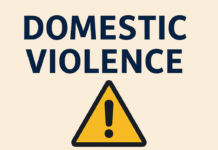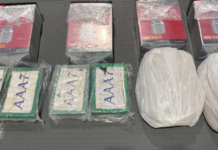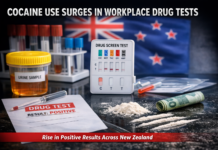‘Oku taupotu ‘i lalo ha fakamatala fakaTonga
COMMENTARY: Pacific Island communities in New Zealand have been badly affected by conspiracy theories about Covid-19 ever since the pandemic struck in 2020.
Investigations by Kaniva News into the phenomenon show that the Tongan community in New Zealand is also vulnerable to such anti-vaccination conspiracy theories.
Recent research has highlighted the presence of a core of anti-vaccination campaigners and right wing conspiracy theorists in New Zealand. Their conspiracy theories are shared by some Pacific Island communities.
Similar ideas have been taken up and used in Fiji, the Solomon Islands and Papua New Guinea. They have also been taken up by Islander communities in Australia.
There are number of reasons for the spread of these conspiracies in the Pacific communities. Research by the New Zealand Ministry of Health and others suggests this may be because of education, mistrust of government sources, uncertainty and cultural isolation.
For many people the Covid-19 epidemic has simply been too large to comprehend. When that happens they may seek simpler or simplistic solutions for what is happening. Some of the solutions are far out on the edge.
Research in the United States has shown a strong link between conspiracy theories and fundamentalist Christianity. This has been reflected in New Zealand by the behaviour of Bishop Brian Tamaki and his followers.
However, a number of Tongan online communities that have promoted conspiracy theories are now saying very different things about the winter flu jab.
Some Facebook groups which opposed Covid vaccines and promoted extremist ideas to support their misleading arguments, have now supported the flu vaccine.
They have told people flu vaccines are perfect, unlike Covid vaccines. The fact is that flu vaccines, like the Covid-19 vaccine, are tested, verified and follow the advice and guidelines of the World Health Organisation. Logically, if the flu vaccine is acceptable, there can be nothing wrong with the Covid-19 vaccine.
The WHO has been collaborating with scientists and policy makers around the world for the past 50 years to develop a unified approach to manufacturing, testing and regulatory oversight of influenza vaccine development as well as their efficient use and distribution.
The fact that these online communities are supporting the flu vaccination is a good sign.
Vaccination is the most effective way to prevent infection and severe outcomes caused by influenza viruses. Getting a flu vaccine helps reduce your risk of getting really sick or having to go to hospital. About 500 New Zealanders die from the flu each year.
The goals of this year’s vaccination campaign include vaccinating 75% of Māori and Pacific people aged 55 and over.
According to the Ministry of Health, 47% of Pasifika peoples over 65 in the Auckland region had received the flu jab by the week ending June 9. The vaccination rate for Pasifika peoples in Auckland aged 55-64 or the same period was 29%. For those aged six months to 12 years in Auckland it is five percent.
The flu vaccine is free for people aged 65 years and over, Māori and Pacific people aged 55 years and over, pregnant people, and people who have long-term conditions like diabetes, asthma, or heart conditions, children aged six months to 12 years old, and people with mental health and addiction issues.
The flu vaccine can be booked through https://bookmyvaccine.health.nz/
FAKAMATALA FAKATONGA
Kuo uesia kovi ‘aupito ‘a e komiunitī ‘o e kāinga Pasifiki ‘e ha fa’ahinga fakakaukau tokua na’e ‘i ai ha fa’ufa’u kovi fekau’aki mo e Kōviti – 19, talu mei he hūfia ko ia ‘e he mahaki faka’auha ‘o e 2020. Na’e mahino ‘i ha fakatotolo na’e fai ‘e he Kaniva News ke ‘ilo ki he tu’unga totonu ‘o e me’a ni, ‘o mahino ai ‘oku kau mo e komiunitī Tonga ‘i Nu’usila ‘i he tu’u lavea ngofua ki he fakakaukau hala ko ‘eni fekau’aki mo e huhu malu’i.
Kuo fakamahino lelei mei ha fekumi ki mui ni mai ‘a e tu’unga totonu ‘oku ‘i ai ‘a e kau fakafepaki mo e kapakau to’omata’u ‘o e kau fatufatu fakakaukau hala ni ‘i Nu’usila. Kuo tufaki holo ‘enau ngaahi fatufatu fakakaukau hala ‘i he ngaahi komiuniti ‘o e kakai ‘o e ‘otu motu.
Ko e fakakaukau tatau na’e ‘asi hake mo fai ai e muimui ‘i Fisi, ‘otu Motu Solomone mo Papua Niukini. Na’e kau ki ai mo e komiuniti ‘o e kakai ‘o e ‘otu motu ‘i ‘Aostelēlia.
‘Oku lahi ‘a e ngaahi ‘uhinga kehekehe ‘oku tufaki holo’aki ‘a e fa’ahinga fakakaukau hala ko ‘eni ‘i he ngaahgi komiunitī Pasifiki. ‘Oku pehe ‘e ha fakatotolo ‘a e Potungāue Mo’ui ‘a Nu’usila mo e ni’ihi kehe pē, ngalingali ‘oku tu’unga ‘eni ‘i ha ngaahi ‘uhinga fakaako, ta’efalala ki he ma’unga ivi ‘o e pule’anga, ta’eta’epau mo e tōmui fakasōsiale.
Ko e kakai toko lahi ia ‘oku fu’u faingata’a pē ia ke mahino kia kinautolu ‘a e Kōviti – 19. Ko e taimi ‘oku hoko ai te nau ala fekumi pē ki ha founga tali ‘oku faingofua fekau’aki mo e me’a ‘oku hoko. Ko e ni’ihi leva ‘o e ngaahi founga fu’u tō ia ki tu’a mama’o.
Kuo fakahā ‘e ha fakatotolo ‘i ‘Amelika ha felāve’i tonu ‘a e fatufatu fakakaukau hala ko ‘eni mo e ni’ihi ‘oku nau tui ko kinautolu ‘oku nau ma’u ‘a e Tui fakakalisitiane tonu taha. Na’e hā eni ‘i he tō’onga ko ia ‘a Pīsope Brian Tamaki mo hono kau muimui.
Makehe mei ai, ‘oku mapuna hake ‘i he ngaahi komiunitī Tonga online ‘a e ngaahi fakakaukau hala ko ‘eni ‘o tala kehe’i ia ‘i he’ene fekau’aki mo e huhu fulū ko ‘eni ‘o e faha’i ta’u momoko.
Ko e ni’ihi ‘o e ngaahi kulupu fakafepaki’i ‘o e huhu malu’i ‘i he Facebook mo taukave’i ‘a e fakakaukau fakavalevale ‘a e kakai ko ‘eni koe’uhi ke poupou’i ‘aki ‘enau ngaahi taukave fehalaaki, kuo nau poupou’i ‘eni ‘a e huhu malu’i ‘o e fulū.
Kuo nau tala ‘eni ki he kakai ko e huhu malu’i ‘o e fuluu ‘oku sai ‘aupito ia, ‘o ‘ikai hangē ia ko e huhu malu’i ‘o e Kōviti. Ko hono mo’oni ‘eni, ko e huhu malu’i fulūu, tatau pē mo e huhu malu’i Kōviti – 19, kuo ‘osi sivisivi’i kinaua, fakapapau’i pea muimui pau ki he fakahinohino ‘a e Kautaha Mo’ui ‘a Māmani. ‘Oku ‘uhinga lelei leva, ka ‘oku tali lelei ‘a e huhu malu’i fuluu’, pea ta ‘oku malava ke lelei pē mo e huhu malu’i Kōviti – 19.
Kuo ngāue vāofi foki ‘a e WHO mo e kau saienisi mo e kau fatu tu’utu’uni ngāue ‘o māmani ‘i he ta’u ‘e 50 kuo hili ki hono fokotu’utu’u ha fo’unga pau ke ngāue’aki ki hono ngaohi, sivisivi’i pea vakai’i ma’u p1e ‘a hono fakalakalaka’i ‘o e huhu malu’i influenza kae pehē ki he’ene ‘aonga mo ho tufaki.
Ko e mo’oni ‘a e hoko ‘a e poupou ‘a e ngaahi komiunitī ko ‘eni ‘i he ope ko ha faka’ilonga lelei ia. Ko e huhu malu’i ko e founga lelei taha ia ke malu’i ‘a e mafola mo ha ola kovi fakatupu ‘e he vailasi influenza. Ko hono fakahoko hao huhu malu’i fulū ‘e tokoni ia ke fakasi’is’i ange ai ha puke lahi pe ‘alu ki falemahaki. Ko e meimei toko 500 ‘oku mate ‘i he ta’u ko e tupu mei he fulūu.
Ko e ngaahi ta’umu’a ‘o e kemipeini huhu malu’i ‘o e ta’u ni ‘oku kau ai ‘a hono huhu malu’i ‘o e 75% ‘o e kakai Mauli mo e pasifiki ‘oku nau ‘i he ta’u 55 pe lahi ange.
Fakatatau ki he Potungāue Mo’ui, ko e 47% ‘o e kakai Pasifiki lahi hake he ta’u 65 ‘i he vāhenga ‘Aokalani kuo ‘osi fai honau huhu malu’i ‘i he’ene a’u mai ki he ‘aho 9 ‘o Siune. Ko e fika ko ia ‘o e toko lahi ‘o e kakai pasifiki ‘i ‘Aokalani ‘i he ta’u 55 ki he 64, pe ko e taimi tatau ai pē ko e 29%. Ko e 5% leva ‘i ‘Aokalani ko e mahina ‘e 6 ia ki he ta’u 12.
‘Oku ta’etotongi foki ‘a e huhu malu’i fulūu ki he kakai ‘i he ta’u 65 pe lahi ange, ta’u 55 pe lahi ange ki he kau Mauli mo e Pasifiki, kakai feitama, mo e kakai kuo fuoloa ‘enau mo’ua ‘i he suka, hela, pe mahaki mafu, fānau mahina 6 ki he ta’u 12, mo e kakai faingata’a’ia faka’atamai mo e fa’ahinga kuo fkafalala ‘enau mo’ui faka’atamai mo fakatu’sino ‘i ha fa’ahinga me’a [addiction].
‘E lava ke kole ha taimi ke fakahoko ai e huhu malu’i ‘o fakafou ‘i he – https://bookmyvaccine.health.nz/







